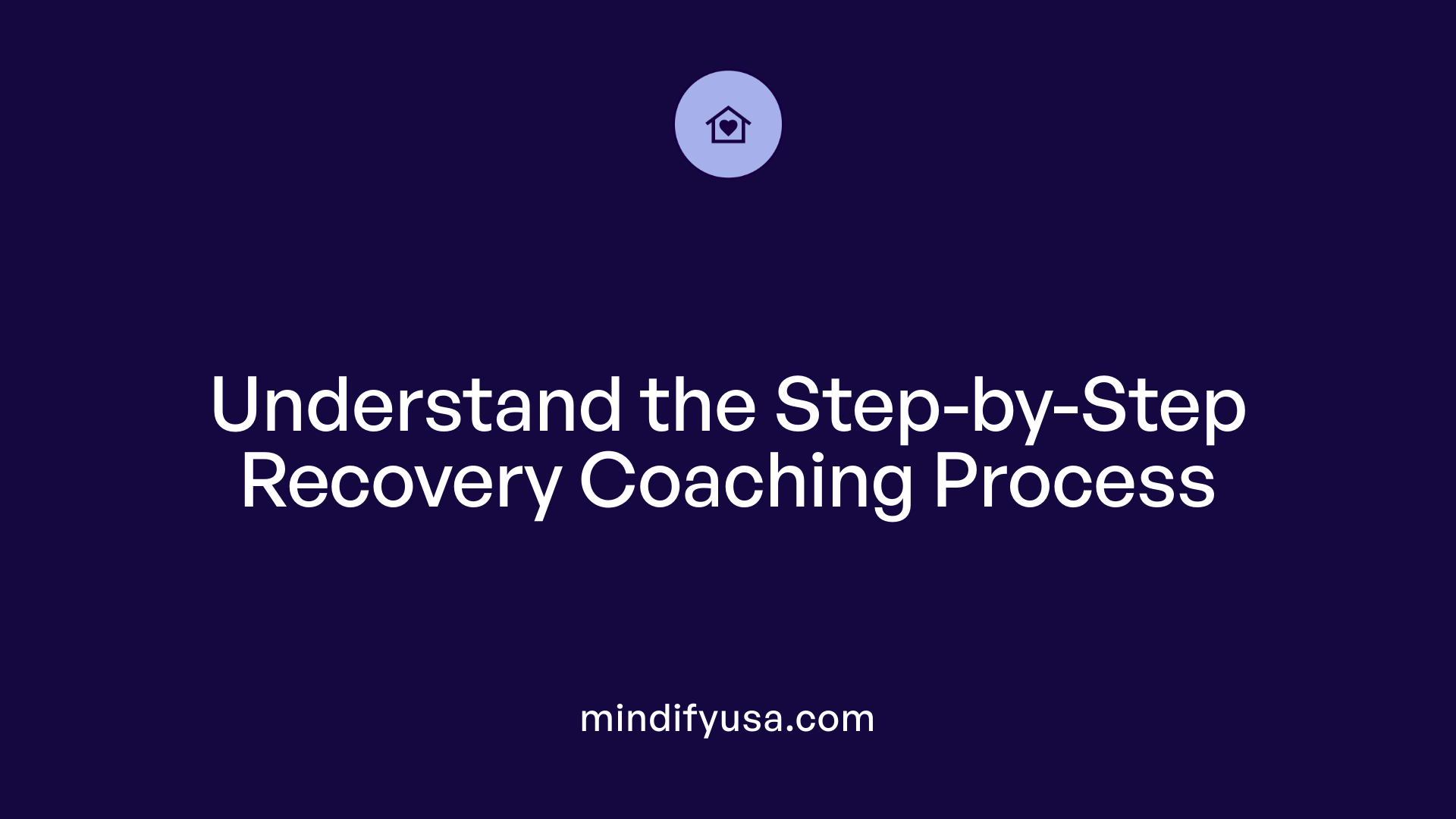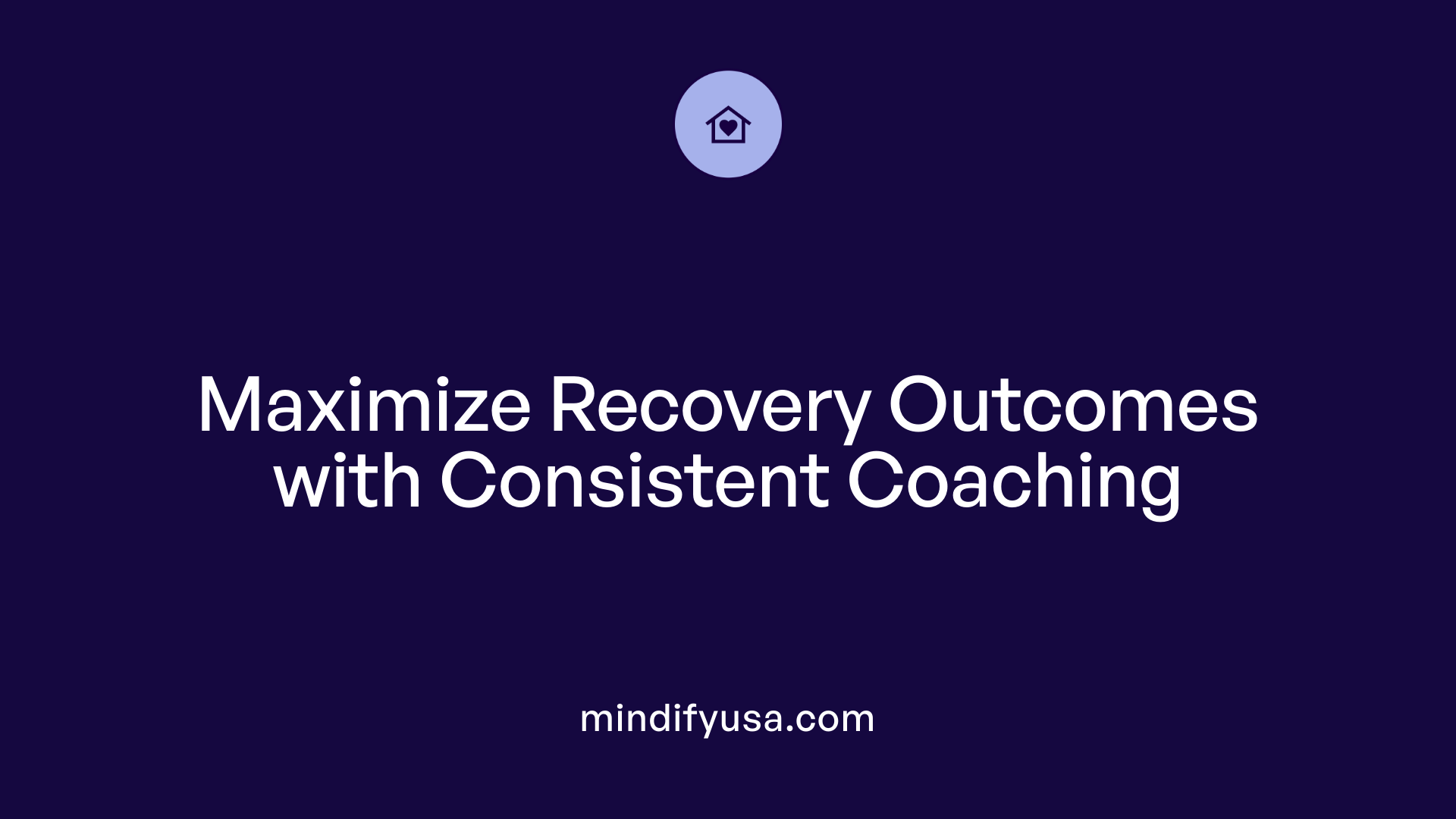Understanding the Timeline for Recovery Support
Recovery coaching is a vital component of many individuals' journeys toward sobriety and personal growth. While its benefits are well documented, one common question remains: how long does recovery coaching last? This article delves into the typical duration, time commitment, and process of recovery coaching, providing a comprehensive overview for those interested in understanding what to expect from this supportive service.
Overview of Recovery Coaching Duration

Can you provide general information about the length and timeframe of recovery coaching?
Recovery coaching programs typically last for about 16 weeks, offering a structured yet flexible timeframe to support individuals on their journey to sobriety and personal growth.
While 16 weeks is a common program length, the duration can vary significantly depending on the individual's needs and circumstances. Recovery coaching is built around personalized plans that adapt to each person's progress and goals, rather than following a strict timetable.
Some programs may extend up to five years, especially for those who benefit from long-term support. More commonly, coaching lasts between 2 to 3 years, providing ongoing encouragement, accountability, and resource navigation.
The process often begins with weekly one-on-one meetings, either in person or via Zoom, coupled with daily check-ins through phone or text. Over time, the frequency of meetings may decrease, but continuous support remains available. On average, patients spend about 120 minutes total with a coach, and the median duration of active communication is around 51 days, typically involving about four contact sessions.
This flexible approach allows recovery coaches to meet individuals where they are, ensuring that each person receives the necessary support to achieve long-term sobriety. The focus is on empowering clients to develop a self-directed Wellness Plan, build new skills, and address challenges proactively.
In summary, while many recovery coaching programs are designed around a typical 16-week structure, the length can extend beyond this period, depending on individual needs. The aim is always to foster a positive, supportive environment that encourages sustained recovery and personal development over an appropriate timeframe tailored to each client.
Typical Time Commitment for Recovery Coaching
How much time should I expect to commit to recovery coaching?
Recovery coaching is a flexible, supportive process that adapts to each individual’s recovery journey. Typically, coaching involves regular meetings—usually once or twice a week—and ongoing communication via phone or text. On average, patients spend about 120 minutes (or two hours) engaging with their coach during active sessions.
While the core of coaching often includes weekly one-on-one meetings, the total number of contacts generally averages around four per client. Communication can span over a median of 51 days, reflecting a sustained support period that's crucial for long-term success.
Most recovery coaching programs recommend a minimum engagement of three months. However, depending on the person's needs and the provider’s framework, support can extend from 2 to 5 years. Longer-term coaching, up to 16 weeks or even beyond, helps solidify skills, encourage accountability, and foster lasting change.
Training background
Recovery coaches typically complete a 46-hour training program provided by organizations like the Council on Recovery, which emphasizes their supportive role and essential tools. Coaches are trained to meet individuals where they are, providing motivation, resource referrals, and encouragement without diagnosing or treating addiction.
Duration of active coaching
Most programs suggest an initial commitment of at least three months, with ongoing support potentially lasting up to five years. The initial phase often includes weekly sessions combined with daily check-ins via text or phone, facilitating continuous progress. This approach allows clients to focus on developing self-directed wellness plans, managing relapse risks, and building a fulfilling life away from substances.
In summary, recovery coaching requires a consistent time investment to be effective. Expect to dedicate about 9 to 16 hours weekly initially, with the understanding that long-term engagement is often necessary for meaningful, lasting recovery.
| Aspect | Typical Duration | Frequency of Contact | Additional Notes |
|---|---|---|---|
| Program Length | 3 months to 5 years | 1-2 weekly meetings | Longer supports may improve outcomes |
| Communication Duration | Median of 51 days | About 4 contacts per client | Extended communication correlates with better treatment engagement |
| Time spent per patient | 120 minutes per session | Often daily check-ins | Daily contact fosters continuous motivation and accountability |
This flexible structure underscores the importance of ongoing, personalized support in recovery.
Program Length Variations and Certification
Recovery coaching programs can vary significantly in both duration and structure based on the specific training providers and certification entities. Typically, these programs are designed to prepare individuals for effective peer support rather than clinical treatment roles.
Many foundational training courses offer around 40 to 80 hours of instruction, often delivered through intensive workshops or online coursework. For instance, the Council on Recovery provides a comprehensive 46-hour training program that emphasizes the skills and responsibilities necessary for recovery coaches.
The length of time needed to complete certification also varies. Some programs may be completed in as little as a few days, such as a 5-day intensive training, perfect for those seeking quick entry into coaching roles. Others, aiming for a more thorough preparation, can span several months, often requiring participants to engage in additional coursework, supervised practice, and ethics training.
In terms of ongoing education, many certification bodies recommend recertification every two years to ensure coaches stay updated with best practices. This continuous professional development can include additional coursework, workshops, or peer supervision.
The actual coaching practice extends well beyond initial certification, with programs supporting ongoing skill development. Recovery coaching duration in practice may last from a minimum of three months to several years, depending on individual client needs and program design. The initial training, however, remains a relatively short, intensive period relative to the long-term coaching relationships that follow.
Below is a comparison table summarizing various aspects of recovery coaching training and certification:
| Program Type | Training Hours | Duration | Additional Requirements | Certification Validity |
|---|---|---|---|---|
| Intensive Workshop | 40-80 hours | Days to Weeks | Ethics and supervised practice | 2 years, renewable |
| Self-paced Online | Up to 80 hours | Months to over a year | Prior experience preferred | 2 years, renewable |
| Comprehensive Program | 100+ hours | Several months | Ongoing education | 2 years, renewable |
Overall, recovery coaching training is designed to be adaptable, allowing individuals from diverse backgrounds to prepare adequately while fitting different personal schedules and commitments.
Timeline and Process of Recovery Coaching

Initial assessment
The recovery coaching journey begins with an initial assessment, where clients have the opportunity to share their personal history, current circumstances, and recovery goals. This session is typically confidential and helps coaches understand the individual's specific needs and challenges. Many programs start with a complimentary consultation to establish rapport and clarify expectations.
Session structure
Clients usually participate in weekly one-on-one meetings, which can be conducted in person or via Zoom. Each session lasts approximately 30 to 60 minutes. Between these meetings, clients receive daily support through texts or calls, fostering continuous encouragement and accountability. The median time spent with a coach is about 120 minutes over the course of contact, with an average of four total contacts per client.
Personalized recovery plan
Early sessions focus on creating a tailored recovery plan designed to support the client's unique circumstances. This plan often includes strategies for relapse prevention, skill-building, and establishing a healthy, supportive lifestyle. Coaches assist clients in setting achievable goals and developing tools to navigate challenges, emphasizing strengths to foster independence and resilience.
Ongoing support
Recovery coaching generally lasts between 2 to 3 years, though some programs extend up to five years to maximize long-term benefits. The typical coaching duration involves a minimum of three months, but many clients engage for longer periods based on their progress and needs. Observational data indicates that contact with a recovery coach correlates with improved treatment engagement, reduced hospitalizations, and increased outpatient visits.
Throughout the process, coaches provide continuous encouragement, resource referrals, and support to help clients build a fulfilling, sober life. The wrap-around approach ensures support starts before treatment, continues through recovery, and extends afterward to promote sustained success.
Support Mechanisms and Relationship Dynamics

Peer-support relationships
Recovery coaching is built on a close, peer-like relationship where coaches meet individuals where they are in their recovery journey. These coaches often share personal experiences, which helps create a bond of trust and understanding. They work alongside clients to set goals, navigate resources, and develop skills to support a sober and fulfilling life.
Availability of support
Support is available around the clock, with recovery coaches providing 24/7 contact options via phone, text, or email. This constant accessibility helps individuals feel supported at any moment, especially during challenging times or when facing potential setbacks.
Focus on strengths and goals
The core of recovery coaching emphasizes tapping into personal strengths and fostering new, positive habits. Coaches assist clients in creating individual Wellness Plans that guide their recovery. Regular meetings—usually once or twice weekly—along with daily check-ins contribute to maintaining focus on progress and long-term goals.
Relationship dynamics and contact frequency
Studies show that the median duration of contact with a coach is 51 days, with patients typically spending around 120 minutes in total sessions. On average, individuals contact their coach about four times during their recovery process. This consistent engagement has been linked to increased treatment participation and higher rates of sobriety, demonstrating the importance of ongoing support and positive relationship building.
Efficiency and Effectiveness of Recovery Coaching Contact
 Recovery coaching plays a significant role in improving outcomes for individuals in recovery from addiction. Regular contact with a recovery coach often enhances the likelihood that a person will engage with additional treatment options and sustain their sobriety.
Recovery coaching plays a significant role in improving outcomes for individuals in recovery from addiction. Regular contact with a recovery coach often enhances the likelihood that a person will engage with additional treatment options and sustain their sobriety.
Studies have shown that clients who have ongoing communication with their recovery coaches are more likely to participate in outpatient programs and other supportive services. This increased engagement helps build a strong foundation for long-term recovery.
Moreover, the frequency and duration of coaching interactions are associated with positive health outcomes. The median length of contact is typically around 51 days, with patients spending about 120 minutes with their coaches and making around four contact attempts. These interactions contribute to a reduction in hospitalizations in the following six months, indicating fewer health crises and emergency visits.
In addition, recovery coaching supports a shift towards outpatient care, evidenced by increased outpatient appointments. This transition signifies greater stability and continued involvement in recovery activities outside of hospital settings.
| Aspect | Impact | Details |
|---|---|---|
| Treatment Engagement | Higher likelihood of active participation | Contact with coaches correlates with more treatment engagement |
| Hospitalization Reduction | Fewer emergency hospital visits | Contact duration linked to fewer hospitalizations in 6 months |
| Outpatient Appointments | Increased outpatient care | More frequent coaching supports ongoing outpatient recovery |
Overall, effective and sustained contact with recovery coaches significantly boosts the chances of maintaining sobriety, engaging in treatment, and reducing hospital stays, contributing to better long-term recovery outcomes.
Summary and Final Insights on Recovery Coaching Duration
Recovery coaching is a flexible, tailored service designed to support individuals at various stages of their recovery journey. While the core program lasts approximately 16 weeks, the overall support duration can extend up to five years, depending on personal needs and circumstances. On average, clients engage with their coaches for about 51 days and spend around 120 minutes per contact, emphasizing the importance of consistent and ongoing support. Whether through weekly meetings, daily check-ins, or longer-term companionship, recovery coaching aims to foster lasting change, equipping individuals with the tools required for sustained sobriety and personal growth.
References
- Recovery Coach Naperville
- Recovery Coaches Help Guide the Way to Lasting Sobriety
- Recovery Coaching in Columbus, Ohio | Ongoing Support
- Initial evaluation of a peer recovery coach program in a ...
- What is Recovery Coaching? A Beginner-Friendly Guide
- What is Recovery Coaching? A Beginner-Friendly Guide
- How Does Recovery Coaching Work? - Michael Walsh
- What is Recovery Coaching for Substance Addiction?





































































































